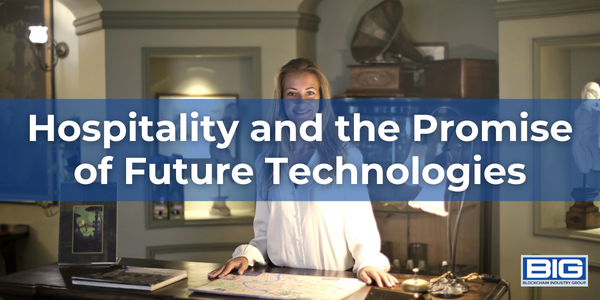
The adoption of future technologies could significantly change the way that hospitality is performed, enabling the creation of more personalized, efficient, and immersive experiences. These technologies could enable the collection and analysis of data, the creation of virtual and interactive environments, the optimization of operations, the security and transparency of digital content, and the differentiation from competitors. This could drive significant change in the hospitality industry by enabling businesses to attract and retain customers and improve their operations. The use of these technologies could enable businesses to stay ahead of the competition and drive growth and success.
Artificial intelligence
Artificial intelligence technology could significantly change the way that hospitality is performed, enabling the creation of more personalized and efficient experiences. Artificial intelligence could enable the analysis of customer data and behavior to identify opportunities for personalization and optimization, improving the customer experience and driving engagement.
For example, the use of artificial intelligence could enable hotels to create chatbots or virtual assistants that can interact with guests in a more personalized and targeted way, improving the efficiency and effectiveness of their customer service. It could also enable hotels to analyze customer feedback and reviews to identify opportunities for improvement, enhancing the customer experience and driving engagement. Additionally, the use of artificial intelligence could enable hotels to optimize their operations by identifying the most effective channels and tactics for reaching and engaging customers.
Virtual and augmented reality
Virtual and augmented reality technologies could significantly change the way that hospitality is performed, enabling the creation of more immersive and interactive experiences. Virtual and augmented reality could enable the creation of virtual worlds and environments, improving the customer experience and driving engagement.
For example, the use of virtual and augmented reality could enable hotels to create immersive and interactive experiences that allow guests to explore virtual environments and interact with products and services in a more realistic and engaging way. This could enable hotels to provide more engaging and interactive experiences for guests, enhancing the customer experience and driving engagement. It could also enable hotels to differentiate themselves from competitors by offering unique and innovative experiences for guests.
Internet of Things
Internet of Things (IoT) technology could significantly change the way that hospitality is performed, enabling the creation of more connected and data-driven experiences. IoT could enable businesses to collect and analyze data from connected devices and systems to identify opportunities for optimization and improvement, improving the customer experience and driving engagement. This could drive significant change in the hospitality industry by enabling businesses to differentiate themselves from competitors and attract and retain customers.
For example, the use of IoT could enable hotels to create personalized and targeted experiences for guests based on data collected from connected devices and systems, improving the efficiency and effectiveness of their operations. This could enable hotels to collect and analyze data from connected devices and systems to identify opportunities for optimization and improvement, enhancing the customer experience and driving engagement. It could also enable hotels to differentiate themselves from competitors by offering unique and innovative experiences for guests. Additionally, the use of IoT could enable hotels to improve the efficiency and effectiveness of their operations by collecting and analyzing data from connected devices and systems.
20 Artificial Intelligence Use Cases
—
20 Autonomous Vehicle Use Cases
—
20 Internet of Things (IoT) Use Cases
Blockchain
Blockchain technology could significantly change the way that hospitality is performed, enabling the creation of more secure and transparent experiences. Blockchain could enable businesses to create secure and transparent systems for the distribution and consumption of digital content, improving the customer experience and driving engagement. This could drive significant change in the hospitality industry by enabling businesses to differentiate themselves from competitors and attract and retain customers.
For example, the use of blockchain could enable hotels to create secure and transparent systems for the distribution and consumption of digital content, such as room keys and vouchers. This could enable hotels to ensure that digital content is protected from unauthorized access and distribution, enhancing the customer experience and driving engagement. It could also enable hotels to differentiate themselves from competitors by offering unique and innovative experiences for guests. Additionally, the use of blockchain could enable hotels to improve the efficiency and effectiveness of their operations by creating secure and transparent systems for the distribution and consumption.



